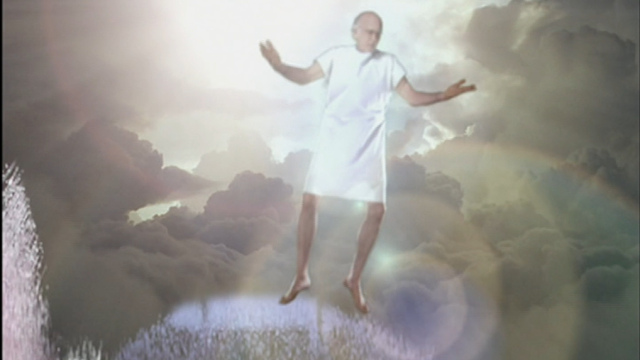It amazes me how much influence Curb Your Enthusiasm has had on me in the short amount of time I’ve embraced it. As always, I’m delighted that TV can still blow my tiny mind like I’m an eight-year-old watching Star Wars; I never really want to allow myself to become complacent about enjoying art of any kind. Sometimes people can get frustrated by not getting that spark of joy from being exposed to something new and wonderful – in fact, like Star Wars fans bitter that neither the OT nor any new work seems to satiate that hunger for wonder they crave. I know I sometimes get into a rut rewatching old works in a limping desire for that feeling, especially on a bad day, but I think everyone is aware that’s at best a crutch and at worst a bad habit.
Anyway, Curb has had as significant an effect on me as a creative as much as a person. The thing that really gets me is how much it depends on faith – specifically, faith in the process. I spent a long time being a wannabe creative without actually really making much because I was afraid of failure and wanted complete control over both the process and the audience, and while I’m past that, I still feel a weight in my stomach at the thought of throwing myself into flagrantly making up each scene on the spot ten to fifteen times for each episode. And yet, that’s exactly what Larry David did! And it worked! Using a fairly straightforward process – his character wants something, he throws something out there to get it, the other performer responds – he generates comedy. He trusts his fellow performers to work with him, he trusts his instincts for comedy, and most of all he trusts that the process itself will pull the whole thing together.
It’s made me rethink a lot of my assumptions about creativity. You can think that the whole thing has to be perfect – that it’s a complex interweaving of images into one elegant whole. There’s even been some genuinely good art made like that; much of the pleasure of mid-to-late Tarantino for me is the way he builds each movie as a complex puzzle, where each piece is connected to another piece; The Simpsons irons out every individual moment for maximum effect; the works of Dan Harmon do both at the same time. But it’s also possible to think of creativity as a process of discovery, where intuition based on the needs of the moment generates the next idea and then is followed further. It’s not a matter of showing the comedic energy as it is finding it. This also applies to drama; I did, of course, filter individual scenes of The Shield through the mindset of Curb and was intrigued at how it ‘felt’ the same – shooting not for comedic energy specifically but for more consequences, but the basic idea of trusting the process and following is the same.
Season five is specifically interesting in that it feels like David is getting more ambitious and confident than ever. It begins with him having a near-death experience and bragging about how it changed his views, only for him to immediately descend into his usual idiocy, which is pretty funny for a comedy beginning to age; it ends with him briefly ascending into heaven, meeting his guides (played by megastars Dustin Hoffman and Sacha Baron Cohen), and then getting into a petty argument with them over losing DVDs. This made me nearly weep laughing, not just because Dustin Hoffman brings a quiet dignity to his rage at Larry thinking he has a system for not losing DVDs, but because it was such a funny recontextualisation of the normal approach of the show. It puts into perspective how simple and elegant the show’s comedy is that you could plug in literally any characters and setting and it’ll be funny.
But oddly enough, this isn’t what I find most ambitious about the season – it’s the stuff with Richard Lewis’s need for a kidney. It feels like a particularly risky direction to take comedy – not because the topic of organ donation isn’t funny, but because it doesn’t intuitively gel well with comedy that’s generally about farce and meaningless conflicts escalated far beyond what they deserve. That is to say, it could potentially be the ‘wrong’ kind of funny; tonally out of wack. Think of Family Guy tossing together a heartwarming sentimental joke next to something about baby dicks with the effect like stapling a Hallmark card to, well, a baby dick – horrifying, unnecessary, just kind of dumb. Team David manage to emerge out of every situation with endings that are funny for being precisely what Larry deserves from this world.


